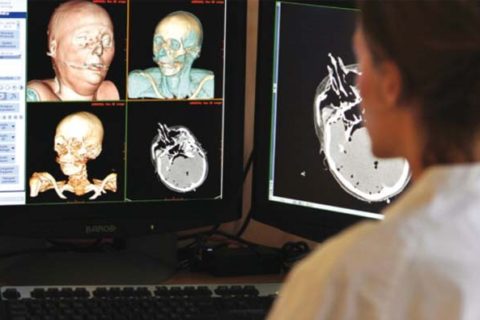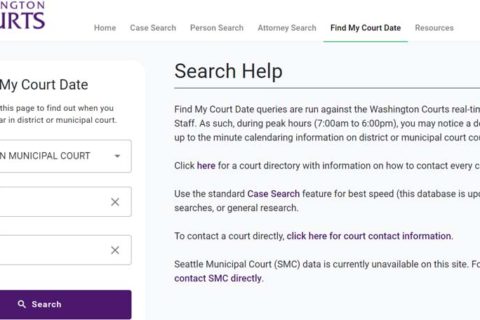To create a safe and drug-free workplace, a drug test is not only conducted by the U.S. Department of Transportation (DOT) to ensure public safety since it relates to the transportation industry. Currently, many companies and organizations independently administer a drug test called a non-DOT drug test one of them is for this reason.
A non-DOT drug test usually follows state-level regulations, which will vary from one state to another and also in the specimens collected for the test. However, a non-DOT drug test does not always work for every individual due to some factors.

Okay, here’s everything you need to know about why someone fails a non-DOT drug test and what will happen!
What Happens If You Fail a Non-Drug Test?
If employees working under the DOT authority fail a DOT drug test, let alone the non-DOT drug tests that are usually conducted by employers, private companies, sports organizations, educational institutions, or others. Failure to carry out a drug test may be considered reasonable, but the impact that will arise will always follow.
When it comes to the failure of a non-DOT drug test, the consequences will depend on the policies and regulations of the company or organization that administers the individual’s drug test.
If you happen to undergo a non-DOT drug test administered by your employer but fail, there are several possibilities that will happen, either good or bad. They might be:
- You may continue to work, and you will be scheduled for the next test.
- You’ll continue to work at the company but will begin to be closely supervised.
- You’ll continue to work, but you will lose certain benefits, such as workers’ compensation benefits, health insurance coverage, and eligibility for promotions within the company.
- You’ll be given a warning letter, which means you are at high risk.
- Worst of all, you may be laid off from your company without further testing since you will be considered to be close to being a positive drug user.
- If you are undergoing pre-employment screening and fail a non-DOT test, it may result in the withdrawal of a job offer.
Unlike the DOT-regulated employees, who are all really required to undergo a drug test due to safety factors, employers have the right to decide which employees should undergo a non-DOT drug test. It means that employers do not need to perform certain tasks to be eligible for the test.
To be accredited as a drug-free work environment, employers may have to conduct a non-DOT drug test under state regulations to qualify. In some states, the regulations may require that employees with certain roles be involved in the drug testing program.
Why Do You Fail a Non-DOT Drug Test
Since a non-DOT drug test does not always work for every individual, of course, you might be the one. There is no doubt that a drug test is not a simple and fast test; instead, it requires a long process to receive the results. Of course, there are some factors that affect the test results—they would be either positive, negative, or inconclusive.
The following are several reasons why you may fail a non-DOT drug test:
1. Limited drug panels
In the case of conducting a drug test, it may use different drug panels, which are predetermined combinations of drugs or substances to be screened. Some panels may contain a variety of substances, while others may focus on specific drugs. Well, a certain substance or drug will not be detected if it is not included in the panel.
2. The use of testing methods
Failure of a non-DOT drug test will also be influenced by the method used for testing. For example, urine tests, which are usually used for drug screening, may have detection windows of several days to several weeks for most substances.
However, other testing methods, such as the hair follicle test, may detect the use of drugs over a longer period of time, commonly up to 90 days. Of course, the accuracy of the drug test result will also depend on the testing methods that the examiners choose.
3. Time sensitivity
Different substances or drugs will also have different windows of detection. It means that these can be detected in the body’s tissues or fluids for different lengths of time after use. It is no wonder that some drugs can only be detected for a few hours or days, while others may be detectable for weeks or even months. So, if the drug test is conducted outside the window of detection for a specific drug, it may produce a false negative result.
4. Adulteration or tampering
In some rare cases, individuals who have undergone a non-DOT drug test may try to tamper with or adulterate their samples to evade detection. Of course, it can involve diluting the urine sample, using synthetic urine, or other methods. However, if the tampering is found, it will be considered a serious offense with potential consequences since the laboratories often have procedures in place to detect it.
You should know that non-DOT drug tests have their limitations since the effectiveness of a drug test will also depend on the accuracy and quality of the testing process, including the specimen collected, the method used, and the analysis by a certified laboratory.
What Substances or Drugs Are Tested on a Non-DOT Drug Test?
The specifics of a non-DOT drug test will vary depending on the organization and their policies. A DOT drug test uses a 5-panel drug test, while a non-DOT drug test can choose any form of drug test—either a 10-panel or 12-panel, as they want.
Basically, non-DOT drug tests often screen for some commonly abused substances, such as cocaine, marijuana, opioids, amphetamines, benzodiazepines, and others. Depending on the organization’s preferences and requirements, a non-DOT drug test usually uses some methods, including hair, blood, saliva, or even sweat samples.
When it comes to the procedure of a non-DOT drug test, it can also wildly vary in the specimens collected, the procedures for testing, the scope of the program, the forms used, the consequences for violations, and the cutoffs for violations.
The cutoff levels to determine a positive result in a non-DOT drug test may also be different from a DOT-regulated drug test. In addition, a non-DOT drug test may not include alcohol screening, while a DOT drug test includes it for safety-sensitive positions in transportation-related industries.
What Are the Rules of a Non-DOT Drug Test?
If DOT drug tests have very strict rules under U.S. Department of Transportation (DOT) regulations due to public safety, a non-DOT drug test, otherwise, usually follows state-level rules that only cover a drug-free work environment program. Of course, the rules for non-DOT drug tests will differ from one state to another.
However, it’s very important for you to check with the particular organization or employer who is performing the drug test to understand the substances screened, the procedures used, and the consequences of a positive result for the particular non-DOT drug test.

A bookworm and researcher especially related to law and citizenship education. I spend time every day in front of the internet and the campus library.





